About
Our research focuses on the molecular and cellular basis of breast cancer development, improving the way we predict the risk of relapse, and finding better ways to treat this disease.
Contact
+61 7 3346 6052
Peter Simpson:
+61 7 3346 5051
Amy McCart Reed:
Global Lobular Breast Cancer Awareness Day 2025 Webinar
15 October 2025
A/Prof Sanja Warrier, Dr Sarita Bahure, A/Prof Peter Simpson, Q&A moderated by A/Prof Amy McCart Reed
Global Lobular Breast Cancer Awareness Day
On October 15, we recognised the first inaugural Global Lobular Awareness day by hosting an informative webinar!
See below for presentations from A/Prof Peter Simpson; A/Prof Amy McCart Reed, Dr Anna Sokolova and Dr Tivya Kulasegaran
ILC Symposium 2024, Leuven, Belgium
In September, A/Prof Pete Simpson, A/Prof Amy McCart Reed and Dr Tivya Kulasegaran attended the ILC Symposium in Belgium! We were able to listen to presentations from amazing researchers and connect with our amazing ILC advocate community and the Lobular Breast Cancer Alliance. Seen below with Pamela Kinnon!
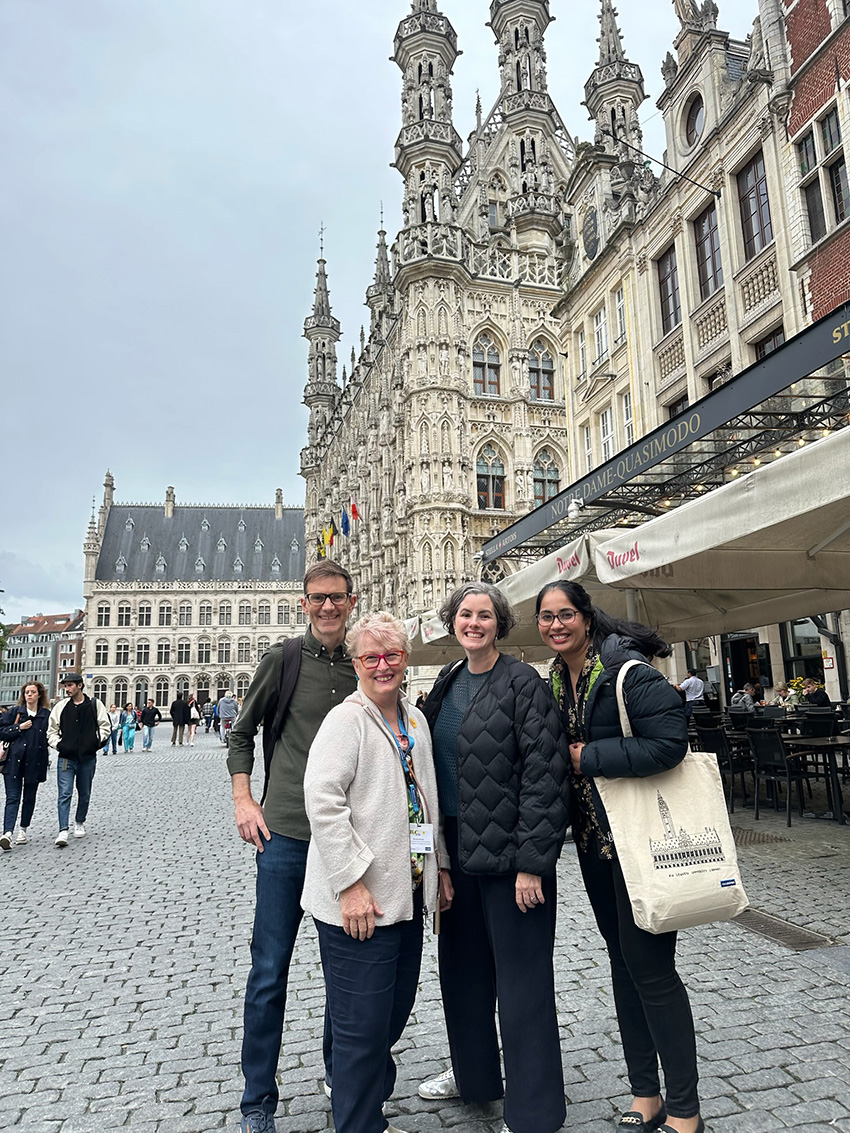
Leura 9th International Breast Cancer Conference
A/Prof Pete Simpson and Prof Sunil Lakhani attended and presented at the iconic Leura meeting in October! Pete spoke on ‘Lobular breast cancer ‘ and Sunil presented ‘Pitfalls in using and interpreting morphology and molecular information’ and ‘Core Biopsy of borderline lesions- do they all need to be excised?’
Breast Cancer Trials Annual Scientific Meeting
In Cairns in July, A/Prof Amy McCart Reed presented on lobular breast cancer and Prof Sunil Lakhani spoke on DCIS. Both were interviewed for the Breast Cancer Trials Podcast!
Dr Amy McCart Reed was recently interviewed for the ABC News program about Invasive Lobular Breast Cancer. See the article, radio story and video.
Associate Professor Pete Simpson, head of the UQCCR Cancer Genomics lab, was invited to speak at the International ILC Virtual Symposium.
This meeting brought together researchers, clinicians and lobular breast cancer advocates, and was supported by the Lobular Breast Cancer Alliance. Invasive Lobular Carcinoma is the second most common type of breast cancer, and it has many unique features. Associate Professor Simpson, Dr Amy McCart Reed and Dr Jamie Kutasovic, together with Professor Sunil Lakhani, have had a longstanding interest in better understanding ILC biology and genetics, and in identifying which ILC tumours are likely to return as a metastasis. Pete gave an overview of our research, and focused on our recent studies on LobSig and also spread of ILC to gynaecological organs.
You can watch the presentation here and learn more about Invasive Lobular Carcinoma here.
Professor Lakhani is lead pathologist on the OlympiA trial, and the first round of results have been presented at the American Society of Oncology Meeting and published in the New England Journal of Medicine.
The results show the benefit of including PARP inhibitor therapy for patients with an inherited mutation in BRCA1/2 and the drug reduced the risk of recurrence, second cancers and death by over 40%. More data will be emerging over the next few years.
- Drug may help more women survive hereditary breast cancer (4 June, 2021)
- OlympiA: Adjuvant Olaparib Extends Disease-Free Survival in BRCA-Mutated Early-Stage HER2-Negative Breast Cancer (4 June, 2021)
Based at the UQ Centre for Clinical Research, the Brisbane Breast Bank was originally established by Professor Lakhani in 2005, with the aim of collecting a frozen tumour sample from every patient undergoing treatment at the Royal Brisbane and Women’s Hospital.
With financial support from UQ, QIMR Berghofer, the RBWH Foundation and Australasian Biospecimen Network, as well as the cooperation and goodwill of staff from Pathology Queensland, QML and Sullivan Nicolaides Pathology, the bank has been operating for over 10 years, and has become a valuable resource for breast cancer research in Australia and abroad.
Other researchers can apply to access BBB resources, but the research is conducted on a collaborative basis, rather than as a paid service for sample provision. Conducting the research in this way enables us to be true custodians of the biospecimens and clinical data, ensuring the most efficient and meaningful use of this finite resource, and compliance with National Human Research Ethics guidelines. Requests for research collaboration and clinical samples may also come to us via National and International biobanking groups with which we are affiliated:
- The Australian Breast Cancer Tissue Bank (ABCTB)
- The Australasian Biospecimens Network Association (ABNA)
- Brain Cancer Biobanking Australia (BCBA)
- The International Cancer Genome Consortium (ICGC)
The Brisbane Breast Bank represents critical national biomedical research infrastructure and is helping to increase the relevance of breast cancer research on an international scale.
It is now more important than ever to ensure its sustainability.
We are passionate about our research, raising awareness, and involving the community.
The Molecular Breast Pathology team values feedback from the community - we need to know if you think we are focusing on the right issues.
We hold annual consumer representative meetings to showcase our research and seek input on future endeavours, and we are committed to attending and contributing to community events that help raise awareness. We have presented on various aspects of our work at Pink Ribbon Breakfasts, Science week and School events, and breast cancer advocacy meetings. For more information, please contact us.
Useful links
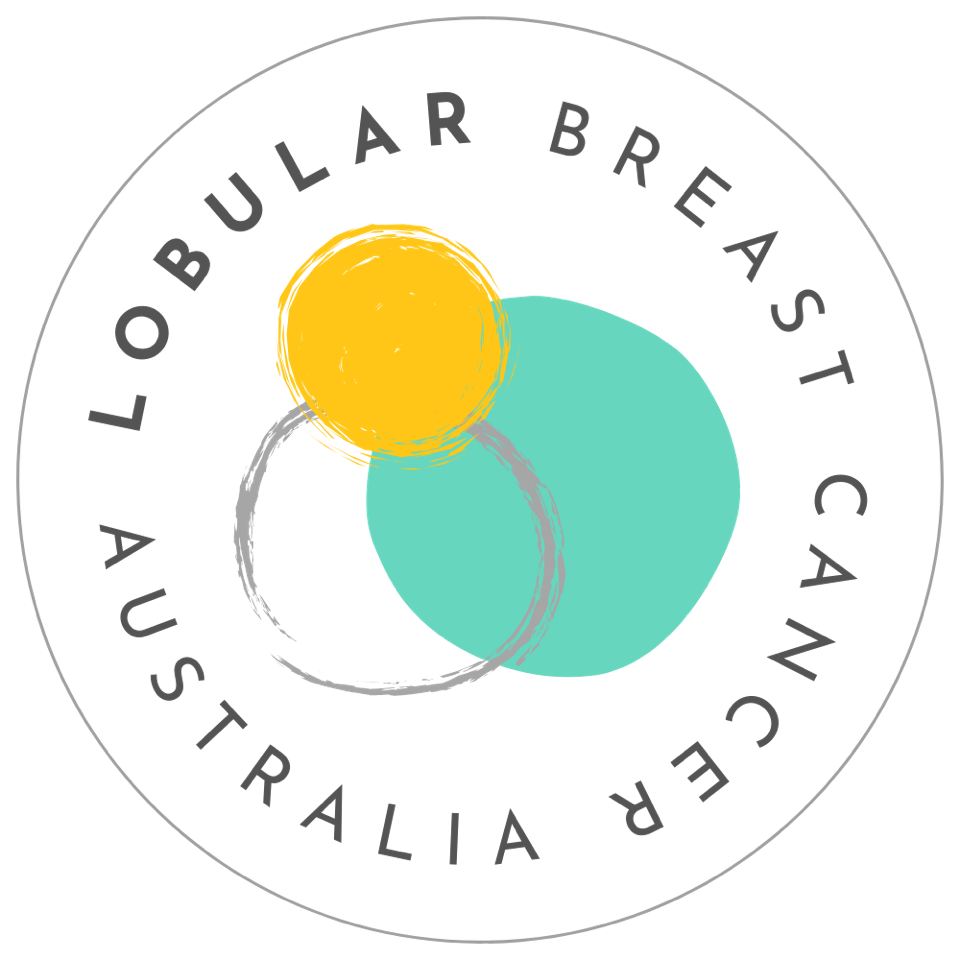 Lobular Breast Cancer Alliance (LBCA)
Lobular Breast Cancer Alliance (LBCA)- Kathleen Cuningham Foundation Consortium (kConFab)
- Advanced Breast Cancer Group Brisbane (ABCG)
- National Breast Cancer Foundation (NBCF)
- Breast Cancer Network Australia (BCNA)
- Cancer Council Queensland (CCQ)
- Cancer Australia
- Metavivor
- Breast Cancer Trials

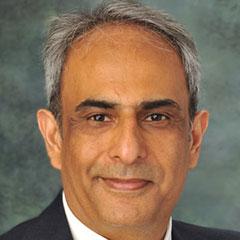





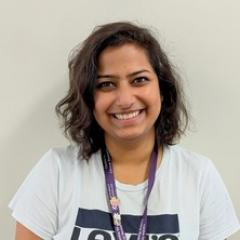
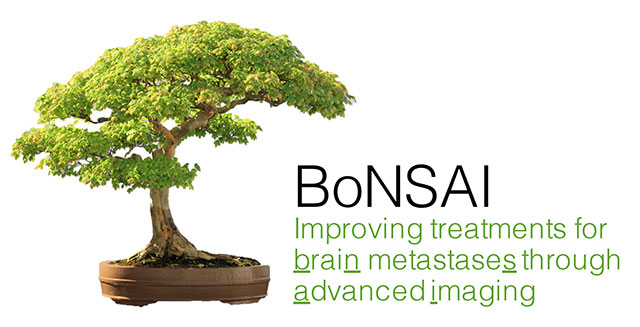 Oncology R&D is flourishing at the moment, yet molecular-targeted agents are still not routinely used to manage metastatic brain disease. Historically, a heavy co-morbidity burden and misconceptions about added risk of toxicity restricted their participation in clinical trials, but this trend is beginning to change. An increasing number of clinical trials assessing the intracranial efficacy of molecular-targeted agents are being registered. Many are testing monoclonal antibodies (mAbs) that target human epidermal growth factor receptors (HERs), which have been strongly implicated in the risk of metastatic outgrowth in neuregulin-rich brain tissue. This reflects the urgency of the public health problem and is a promising sign of healthcare reform.
Oncology R&D is flourishing at the moment, yet molecular-targeted agents are still not routinely used to manage metastatic brain disease. Historically, a heavy co-morbidity burden and misconceptions about added risk of toxicity restricted their participation in clinical trials, but this trend is beginning to change. An increasing number of clinical trials assessing the intracranial efficacy of molecular-targeted agents are being registered. Many are testing monoclonal antibodies (mAbs) that target human epidermal growth factor receptors (HERs), which have been strongly implicated in the risk of metastatic outgrowth in neuregulin-rich brain tissue. This reflects the urgency of the public health problem and is a promising sign of healthcare reform. 